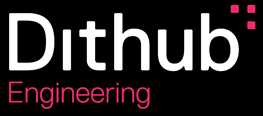
Smart Home Automation
12/06/2019-
 Solar Power
Solar Power
For Homes.
Tired of receiving recurring inflated electricity bills not to mention the price of electricity is constantly on the rise. Its high time home owners embraced the solar panel solutions that have become key in the drive for lower energy costs and a cleaner environment.
It is estimated that the entire human population of the earth uses almost 117.3 terawatt hours of energy in average per year. The sun is capable of producing more energy than what is being consumed by humans by a factor of 20,000 times. However, all this energy is not directly available and has to be converted to usable energy.
In Africa we are at an advantage because we are blessed with sunlight all year round & need to take advantage by tapping this free and clean energy source to light up remote and isolated homes that have no immediate hope of linking to their national electricity grid. The image below shows the best areas for solar panels & average amount of power generated.
WORLD MAP OF GLOBAL HORIZONTAL IRRADIATION

But how many solar panels will you need?
There are several factors to consider:The amount of electricity your home requires. You need to understand the wattage of your appliances.
The amount of sunshine in your area.
The amount of wind in your area. If you are using wind power, how much wind does your area of the country typically receive?
The amount of energy storage you have available (batteries). If you have too few batteries, extra solar panels may only go to waste.
Your budget constraints.
Advantages of Solar Energy
1. Renewable Energy Source
Among all the benefits of solar panels, the most important thing is that solar energy is a truly renewable energy source. It can be harnessed in all areas of the world and is available every day. We cannot run out of solar energy, unlike some of the other sources of energy. Solar energy will be accessible as long as we have the sun, therefore sunlight will be available to us for at least 5 billion years when according to scientists the sun is going to die.2. Reduces Electricity Bills
Since you will be meeting some of your energy needs with the electricity your solar system has generated, your energy bills will drop. How much you save on your bill will be dependent on the size of the solar system and your electricity or heat usage. Moreover, not only will you be saving on the electricity bill, there is also a possibility to receive payments for the surplus energy that you export back to the grid. if you generate more electricity than you use (considering that your solar panel system is connected to the grid).3. Diverse Applications
Solar energy can be used for diverse purposes. You can generate electricity (photovoltaics) or heat (solar thermal). Solar energy can be used to produce electricity in areas without access to the energy grid, to distill water in regions with limited clean water supplies and to power satellites in space. Solar energy can also be integrated into the materials used for buildings. Not long ago Sharp introduced transparent solar energy windows.4. Low Maintenance Costs
Solar energy systems generally don’t require a lot of maintenance. You only need to keep them relatively clean, so cleaning them a couple of times per year will do the job. If in doubt, you can always rely on specialized cleaning companies, which offer this service from around Ksh3,500 to 4,500. Most reliable solar panel manufacturers offer 20-25 years warranty. Also, as there are no moving parts, there is no wear and tear. The inverter is usually the only part that needs to be changed after 5-10 years because it is continuously working to convert solar energy into electricity and heat (solar PV vs. solar thermal). Apart from the inverter, the cables also need maintenance to ensure your solar power system runs at maximum efficiency. So, after covering the initial cost of the solar system, you can expect very little spending on maintenance and repair work.5. Technology Development
Technology in the solar power industry is constantly advancing and improvements will intensify in the future. Innovations in quantum physics and nanotechnology can potentially increase the effectiveness of solar panels and double, or even triple, the electrical input of the solar power systems.
Disadvantages
1. High initial costs for material and installation and long ROI.2. Needs lots of space as efficiency is not 100% yet.
3. No solar power at night so there is a need for a large battery bank.
4. Devices that run on DC power directly are more expensive.
5. Depending on geographical location the size of the solar panels vary for the same power generation.
6. Cloudy days do not produce much energy.
Conclusion
At DITHUB Engineering we offer 'turn-key' commercial solar solutions, conceived specifically to insure your home/business's long-term sustainability. This is achieved both by producing electricity cheaply, and also by reducing your consumption with new cutting-edge technology. Our solar designers and consultants will provide the most suitable solutions for your needs and report on energy savings avenues using the following criteria:
Optimum sun exposureLocation and space availability
Structural integrity
Potential current and future energy output considerations
Feel free to reach us with any queries.

